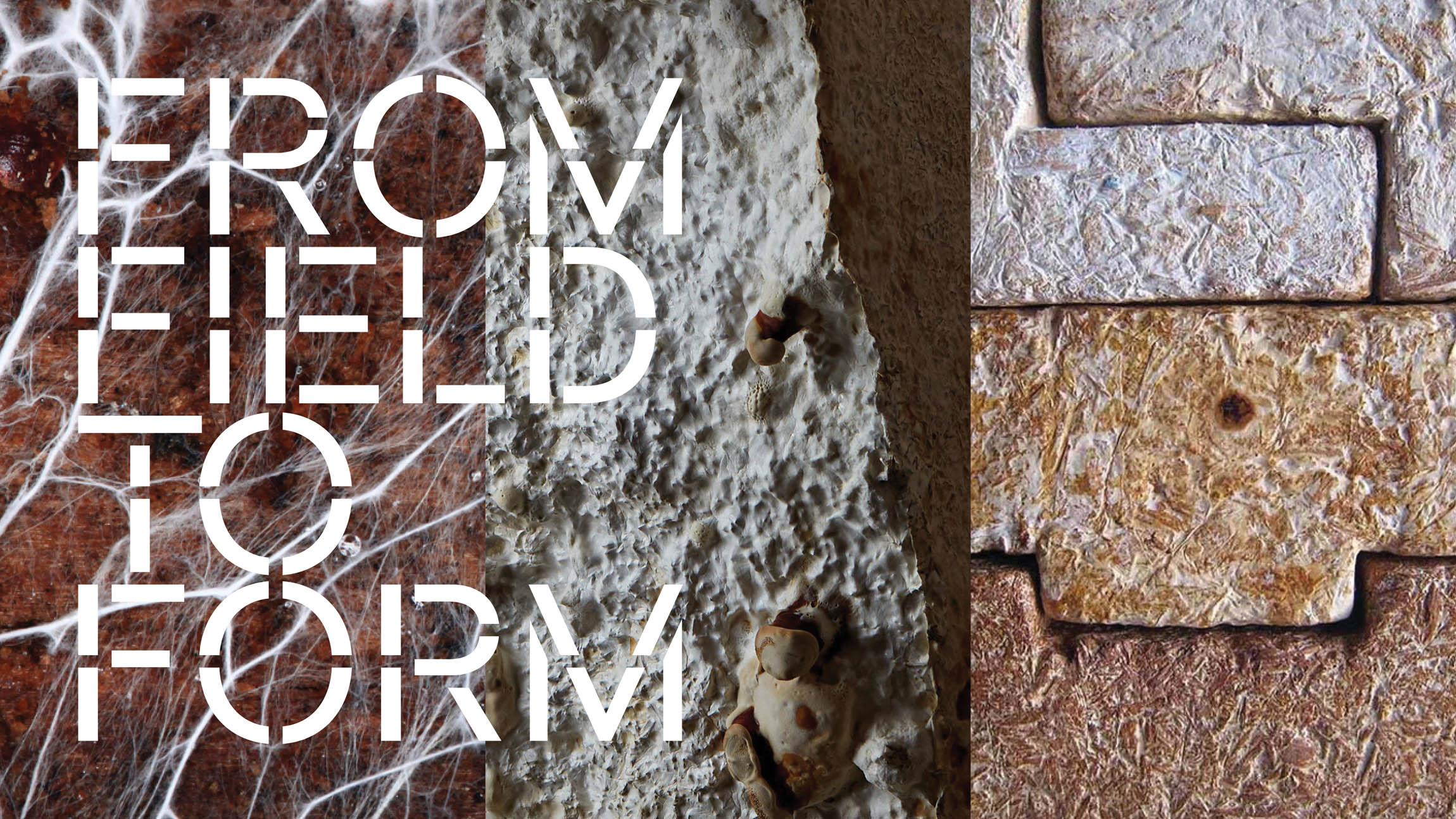From Field to Form: Mycelium
A group of experts discuss the use of mycelium as a building material.
November 20, 2024
6:30 p.m.
From Field to Form is a series of events exploring the possibilities, life cycles, and architectural implications of plant and earth-based materials.
Mycelium is the network of fungal threads, technically called hyphae, that are harnessed to do everything from cleaning up toxic waste sites to providing elegant wood stains to medicinal and culinary uses. The kingdom fungi can also be harnessed to mold bricks and grown to insulate healthier, climate positive buildings.
What role can mycelium play in shaping the future of healthy materials for architecture, design, and construction? On November 20th, a cultivator, a manufacturer, and an architect at the forefront of mycelium’s use in materials and design will be in conversation about the promises of using mycelium to create regenerative built environments.
Organized in partnership with Healthy Materials Lab at Parsons School of Design, this program will explore the potential of mycelium to shape the future of healthy buildings.
Panelists
Serena Camere is head of design and sales at Mogu, an Italian firm that uses mycelium to make interior design products such as acoustic panels, wall panels, and resilient flooring. Camere is a multidisciplinary industrial designer. Her research has focused on the experience-driven use of sustainable materials, particularly of grown materials such as algae, bacteria, and fungi for product design.
Joshua English founded okom wrks labs in 2018. An artist and designer with a career spanning 27 years, English’s current work focuses on harnessing the self-replicating abilities of mycelium to create 1:1 substitutes for materials that have historically led to deforestation through their production. In 2024, okom wrks patented a mycelium-based biocomposite with structural, load-bearing properties, made with hemp hurd and organic cotton.
Chris Magwood is the co-founder and chief climate officer of okom wrks labs. Over his decades-long career developing natural building techniques, Magwood co-founded Builders for Climate Action, developed the BEAM carbon estimator tool, and directed The Endeavour Centre. He is a manager for Rocky Mountain Institute’s Carbon-Free Buildings team, working to develop a standard for measuring embodied carbon in homes. Magwood has authored seven books, most recently Building Beyond Zero: New Ideas for Carbon-Smart Architecture.
Chris Maurer is the founder and principal architect of redhouse studio, a research, environmental justice, and design studio based in Cleveland, Ohio. Founded in 2014, redhouse leverages biofabrication to produce architecture that is regenerative. Maurer has led offices and projects in North America, Europe, and Africa and has developed biofabrication solutions for NASA, MIT, and other institutions.
The discussion will be moderated by Mae-ling Lokko and Jonsara Ruth.
Mae-ling Lokko is an architectural scientist, designer, and educator from Ghana and the Philippines who works with agro-waste and renewable bio-based materials. She is an assistant professor at Yale University and founder of Willow Technologies, a sustainable materials and building technology company. Lokko, in her own words, “explores partnerships that enable generative justice” by developing low carbon bioregional material cycles, fair labor practices, and innovative production models.
Jonsara Ruth is co-founder and design director of Healthy Materials Lab (HML) at Parsons School of Design, working with a dedicated research team to understand how human and planetary health is affected by materials that surround us and advocate for a healthier future. She is an associate professor and founding director of the MFA Interior Design program at Parsons. Ruth founded Salty Labs, a design collective, to experiment and implement designs that embody circularity with healthy, regenerative materials and strategies.
Watch a recording of the event
Recorded on November 20, 2024.
Support
This program is supported, in part, by public funds from the New York State Council on the Arts with the support of the Office of the Governor and the New York State Legislature.
The event is co-presented with the Healthy Materials Lab at Parsons School of Design.



